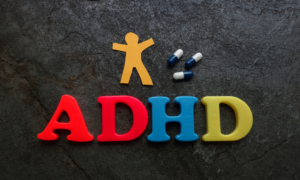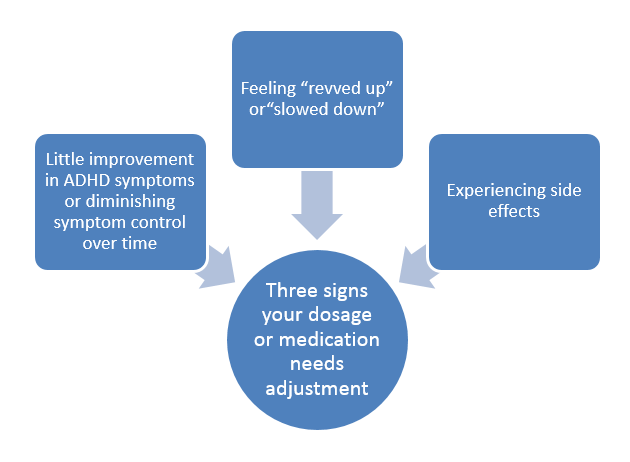
Medication for ADHD
Every child is different, and so are their levels of symptom severity and impairment. Medication for ADHD treatment should thus be tailored to the child’s needs and be in combination with non-pharmacological therapies. The therapist will do a baseline assessment of your child’s height and weight in accordance with the age before prescribing any medication. An evaluation of your child’s sleep pattern, diet and exercise routine is also done to get a clearer picture.
The professional will explain the effect of the medication for ADHD on the symptoms, i.e., which symptoms will improve with medicines and which will not improve with medications. Parents should also be aware of the available options and possible side effects of different medicines. Parents should research and discuss with their doctor about all the available options, the overall impact and side effects, and then judge whether the prescribed medication for ADHD will benefit their child.

Starting medication for ADHD does not mean that your child has to take them forever. If you think that the drug is not working for your child, talk to the doctor and plan for slowly tapering off the medication.
Medication for ADHD are available in two main categories – stimulant and non-stimulant.
Medication for ADHD – Stimulant Medications
Stimulant medication for ADHD are generally the most researched, prescribed and effective drug for children. Around 70-80% of children with ADHD take one or the other form of stimulant medications worldwide. Stimulant medication for ADHD are available in various formulations like immediate-release (IR), short-acting, sustained/extended-release, intermediate-acting, and osmotic-controlled release oral delivery system (OROS), which is long-acting.
Medication for ADHD – Non-Stimulant Medications
Non-stimulant medication for ADHD do not work as quickly as stimulant medication for ADHD but they are long-lasting, and their effect can last up to 24 hrs. In addition, some parents prefer non-stimulant medication for ADHD because they are given only once a day, unlike stimulant medication for ADHD which are given at least twice a day and sometimes even thrice a day.
If you choose to put your child on the medication for ADHD, you have to closely monitor your child for side effects and keep tabs on the medicines’ effectiveness to adjust the prescription accordingly.

Medication for ADHD – Monitor the effect of medication by noticing these signs:
- Your child will have a sustained focus for more extended periods and will pay attention to details.
- Your child will show a decrease in impulsive behaviour, will interrupt less and rarely jump around.
- You will notice an improvement in their general mood. For example, your child will seem less stressed and is more productive than usual.
- They will have fewer social challenges
- Some children will have a night of better sleep, and some will see an improvement in their memory.
Most often, medication for ADHD has some side effects. Report any such instances as loss of appetite, irritability, sleep problems, weight loss, and increased anxiety to the child’s doctor.
Observe and note when your child takes the medication; the medication starts working and the time when the drug starts wearing off. Keep a daily log for the hours of sleep your child gets, their mood while the medicine is working and their attitude when it starts wearing off. Practice taking the record for the first couple of months to understand whether the medication is working for your child or not.
It is advisable to see the doctor once a week and later once a month to gauge improvement vis-à-vis side effects during the initial phase. Most of these side effects tend to be temporary, and adjusting the dose or changing the timing can help control them. In addition, the professional will measure your child’s weight on every visit and discuss their sleep pattern and food intake. They will also take feedback on the medication’s impact from the parents, teachers and the child. For example, some elder children may complain that they do not feel like themselves while taking medicine. The professional addresses such concerns immediately as they can affect the continuance of the medication.

Doctors recommend that it is crucial to take drug holidays, i.e. planned breaks in taking the medication, especially during school breaks/vacations. Drug holidays improve the child’s appetite and let them catch up on growth, as one of the most common side effects of these medications is a loss of appetite, leading to a somewhat slower physical growth rate. Longer drug holidays also give parents and the doctor time to review the need for ongoing medications and adjust the dose accordingly. It is not essential to take medication for ADHD forever. Review the need for continuance of medicine periodically and, if necessary, discontinue them in a phased manner.
Medications for ADHD, whether stimulants or non-stimulants, help manage symptoms but are not a “cure”. Medication is most effective when used in combination with exercise and behavioural and social skills therapy.
In the next section read about behavioural and social skills therapy for ADHD.